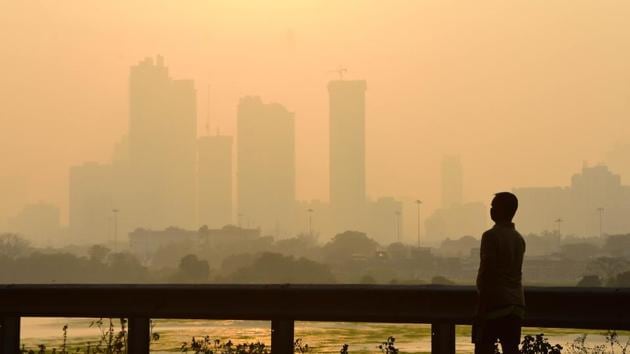Mumbai: Mercury fluctuates from season’s lowest 17.8° to 35.5°C within 9 hrs
However, as the day progressed, warm conditions prevailed indicating a large variation in minimum and maximum temperature.
The city witnessed cool and pleasant weather during early hours of Monday as Mumbai recorded its lowest minimum temperature so far this season. However, as the day progressed, warm conditions prevailed indicating a large variation in minimum and maximum temperature.

The temperature variation has been continuing since last week with the India Meteorological Department (IMD) stating that it could affect the health of citizens.
At 8.30am, Santacruz weather observatory, representative of the suburbs and Mumbai, recorded a minimum temperature of 17.8 degrees Celsius, a degree Celsius below normal, which was the lowest minimum temperature so far this season. At 5.30pm, the maximum temperature was recorded at 35.5 degrees Celsius, almost 3 degrees Celsius above normal. The lowest minimum temperature prior to Monday was recorded on Saturday at 18.4 degrees Celsius.
Doctors said there are two kinds of diseases that can get exaggerated due to large temperature fluctuations. “The first is for people who have asthma or underlying asthma, as asthma flare-ups can happen. Second and most important is that immune system can get weakened when there is such temperature variation. The risks of catching viral infection also increases,” said Dr Sundeep Salvi, director, Chest Research Foundation, Pune.
Similarly, Colaba weather observatory, representative of south Mumbai, recorded minimum temperature at 22.4 degrees Celsius, 1.1 degree Celsius above normal while the maximum was recorded at 34.8 degrees Celsius, 2.1 degree Celsius above normal.
“The change in weather pattern through the day is allowing variation in temperature. During the day there is cool northeasterly winds, but through the day the pattern changes to low-level easterly winds and a clear sky that allows temperature to rise,” said an IMD official.
KS Hosalikar, deputy director general (western region), IMD, said, “The large diurnal variation between maximum and minimum temperatures was predicted by us and has been continuing since last week. This temperature fluctuation could affect health.”
Meanwhile, the air quality index (AQI) fell under moderate category at 149 for PM2.5 pollutant. Bandra-Kurla Complex (280), Malad (215), and Mazagaon (204) had poor air quality while Bhandup (63) and Worli (66) had satisfactory air. An AQI of 139 (moderate) has been predicted for Tuesday, the System of Air Quality Weather Forecasting and Research (SAFAR) said.
Stay updated with all the Breaking News and Latest News from Mumbai. Click here for comprehensive coverage of top Cities including Bengaluru, Delhi, Hyderabad, and more across India along with Stay informed on the latest happenings in World News.
Stay updated with all the Breaking News and Latest News from Mumbai. Click here for comprehensive coverage of top Cities including Bengaluru, Delhi, Hyderabad, and more across India along with Stay informed on the latest happenings in World News.





